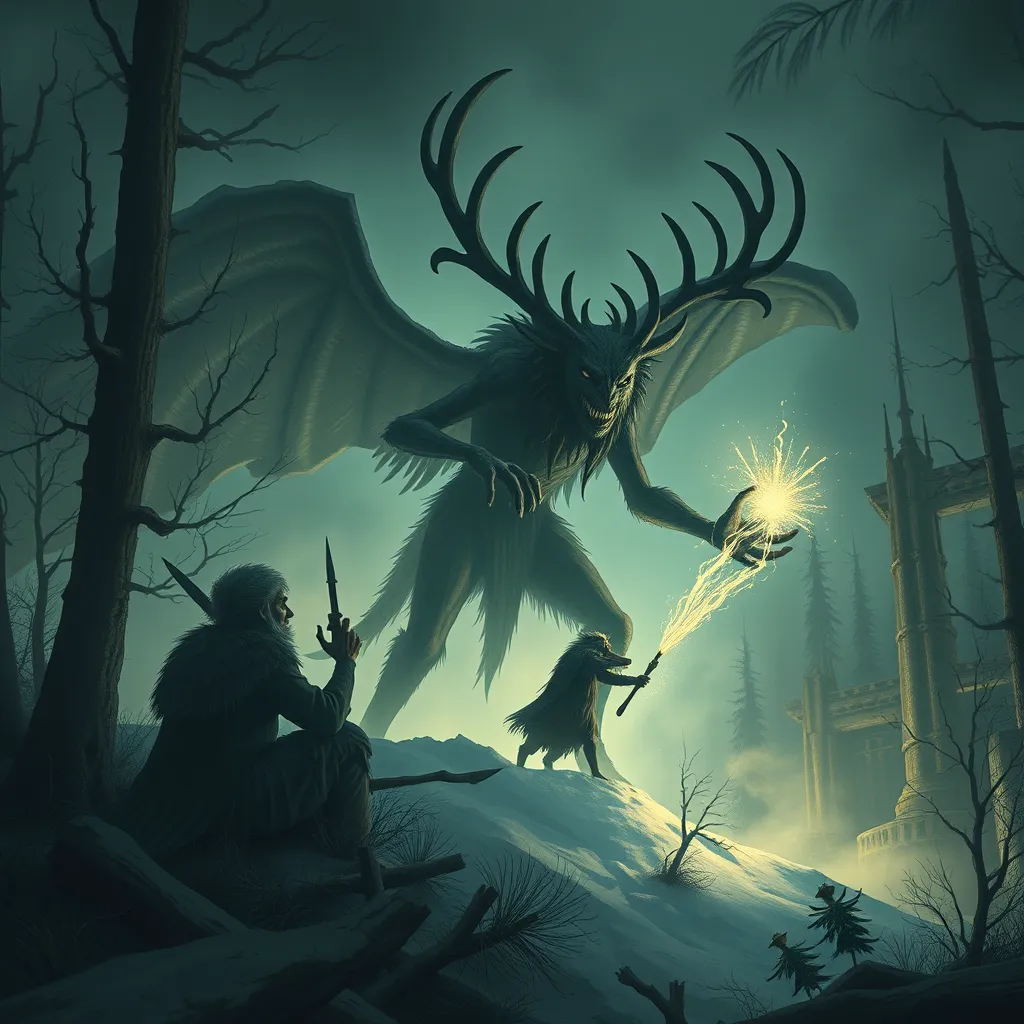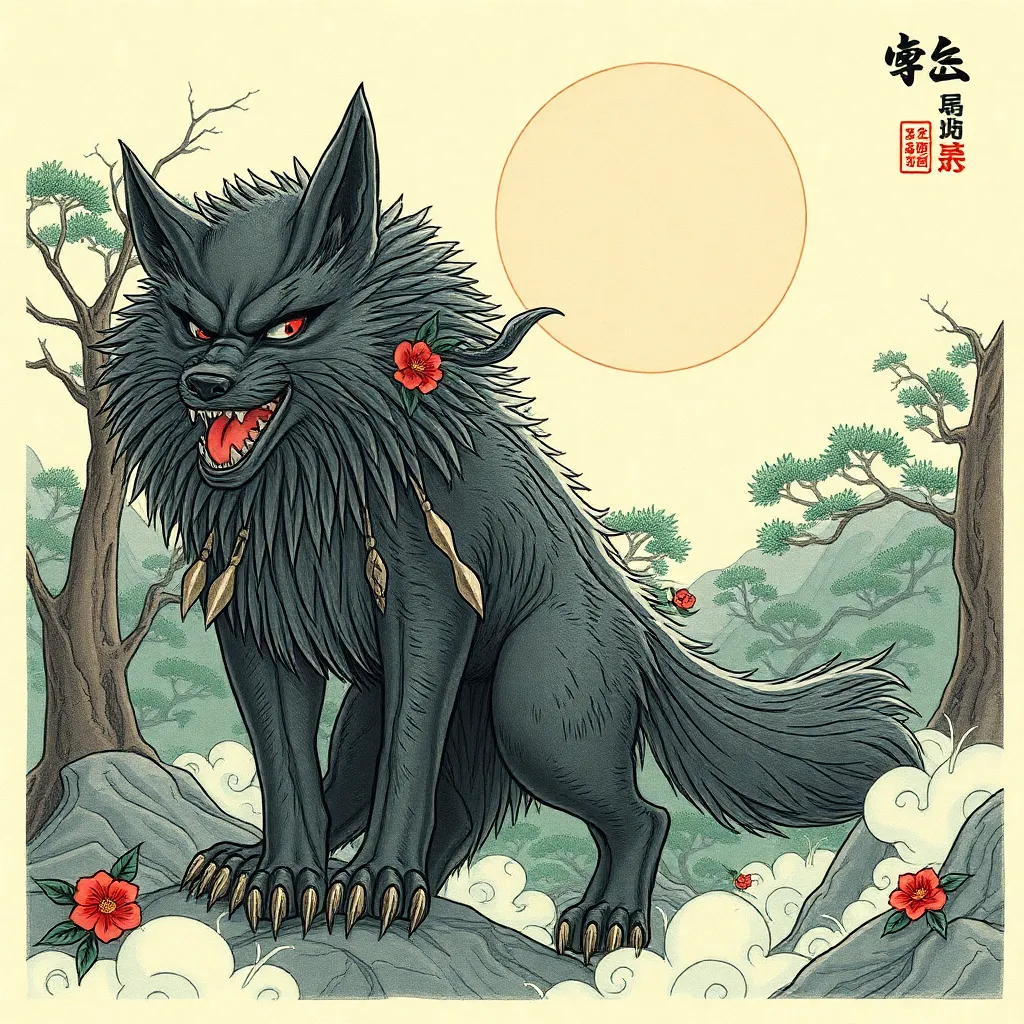Wendigo and the Power of Storytelling: How Myths Shape Our Understanding of the World Around Us
I. Introduction
The Wendigo is a mythological creature rooted in Algonquian folklore, often depicted as a malevolent spirit associated with winter, famine, and insatiable greed. Traditionally described as a gaunt, emaciated figure with a heart of ice, the Wendigo embodies the dangers of overindulgence and the destructive nature of unchecked desire.
Myths, including that of the Wendigo, play a crucial role in various cultures, serving as vessels for moral lessons, cultural identity, and communal values. They shape our understanding of the world, providing frameworks through which we interpret human behavior and societal norms.
This article aims to explore the Wendigo myth, delving into its origins, symbolism, psychological impact, and modern interpretations. Through this exploration, we will uncover the broader implications of myths in shaping our cultural and ethical landscapes.
II. The Origins of the Wendigo Myth
The Wendigo myth originates from the Algonquian peoples of North America, who inhabited regions that now include Canada and the northern United States. Historically, the Wendigo was more than just a creature; it represented a profound warning against the perils of greed and cannibalism, particularly during harsh winters when food was scarce.
The myth has evolved over centuries, adapting to changing cultural contexts while maintaining its core themes. In the past, it served as an explanation for the misfortunes that befell individuals and communities, often linked to moral failings. As European settlers arrived, the Wendigo legend began to incorporate elements from their own folklore, further enriching its narrative.
Geographically, variations of the Wendigo legend can be found among different Native American tribes, each adding unique elements to the story. For example, some tribes describe the Wendigo as a powerful sorcerer who transforms into a monstrous being, while others focus on its insatiable hunger for human flesh.
III. Symbolism and Themes in the Wendigo Myth
The Wendigo myth is steeped in rich symbolism and recurring themes that resonate deeply within human experience:
- Themes of greed, hunger, and excess: The Wendigo embodies the consequences of unchecked desire, illustrating how greed can lead to moral decay and spiritual emptiness.
- Symbolism of transformation and loss of humanity: The transformation into a Wendigo signifies a loss of humanity, highlighting how the pursuit of selfish desires can corrupt one’s essence.
- Connection to environmental and social issues: The Wendigo serves as a metaphor for the environmental degradation caused by overconsumption and the social issues arising from inequality and hunger.
IV. The Role of Storytelling in Cultural Transmission
Storytelling is a fundamental aspect of human culture, acting as a bridge between generations and a means of preserving collective identity. Myths like that of the Wendigo serve several critical functions:
- Educating and preserving culture: Myths convey important lessons and cultural values, ensuring that traditions and beliefs are passed down through generations.
- Impact of oral tradition on community identity: Oral storytelling fosters a sense of belonging and unity within communities, reinforcing shared values and experiences.
- Moral and ethical guidance: Myths often contain moral lessons that encourage individuals to reflect on their actions and the consequences they hold for themselves and others.
V. The Psychological Impact of the Wendigo Myth
The Wendigo myth has significant psychological implications, particularly in how it evokes fear and caution:
- Fear and caution: The legend serves as a cautionary tale, instilling a fear of succumbing to greed and the destructive nature of obsession.
- Implications for mental health: The myth can symbolize the struggles individuals face with their desires and the potential consequences of ignoring their moral compass.
- Influence of fear-based narratives: Fear-based myths can shape behavior, leading individuals to make decisions based on caution and respect for communal values.
VI. Modern Interpretations and Adaptations
In contemporary literature and media, the Wendigo has experienced a resurgence, often depicted in horror films, books, and video games. These modern interpretations reflect not only on the original myth but also on contemporary societal issues:
- The Wendigo in contemporary literature and media: Authors and filmmakers have adapted the Wendigo to explore themes of isolation, mental illness, and the consequences of modern consumerism.
- Resurgence of interest in indigenous myths: There is a growing appreciation for indigenous stories and perspectives, with many creators seeking to represent these narratives authentically.
- Reflection of current societal issues: Modern adaptations often highlight issues such as environmental degradation, mental health crises, and the impacts of consumer culture.
VII. Myths as a Lens for Understanding Contemporary Issues
The relevance of the Wendigo myth extends into today’s world, offering insights into pressing contemporary issues:
- Connection to themes of consumerism: The insatiable hunger of the Wendigo mirrors the endless consumption inherent in modern society, urging reflection on our values and priorities.
- Environmentalism: The Wendigo symbolizes the consequences of environmental neglect and the importance of sustainable living.
- Lessons for modern society: The myth encourages individuals and communities to confront their desires and consider the broader impact of their actions.
VIII. Conclusion
Through the exploration of the Wendigo myth, we uncover the profound power of storytelling and its ability to shape cultural understanding. Myths like the Wendigo provide valuable lessons that resonate across generations, urging us to reflect on our actions, desires, and their consequences. As we engage with these narratives, we foster a deeper appreciation for the stories that guide our worldview and influence our ethical frameworks.
In a rapidly changing world, the Wendigo remains a poignant reminder of the dangers of excess and the importance of maintaining our humanity. By acknowledging the lessons embedded within myths, we can navigate contemporary challenges with greater wisdom and empathy.



